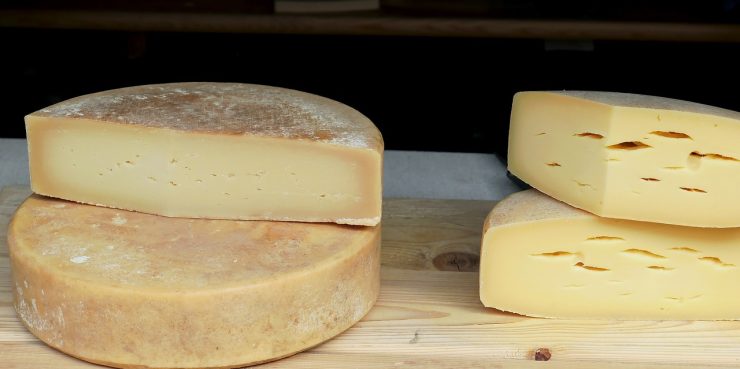Is there anything more delightful than unwinding with a sumptuous slice of aged European cheese paired perfectly with a glass of wine? Or the joy that a sprinkle of high-quality parmesan brings to any dish, not to mention the irresistible charm of grass-fed cheddar melting over a juicy burger? It’s hard to find someone who doesn’t share a love for cheese in its many glorious forms!
Despite dairy’s somewhat tarnished reputation lately, thanks to a mix of misinformation spread by some journalists and influencers…
The reality is cheese, especially certain types, is brimming with health benefits
Assuming, of course, you’re not dealing with lactose intolerance or a genuine dairy allergy (which, interestingly, isn’t as common as one might think).
Take raw grass-fed cheeses, for example. These are not just a treat for your taste buds but a boon for your body, packed with an impressive array of vitamins and minerals. They’re a source of the mighty vitamin K2, a nutrient that’s grabbed headlines for its potential to prevent and even reverse arterial calcification.
This could be a key factor in lowering the risk of heart disease.
It’s a fascinating insight that could explain why the French, despite their generous consumption of butter and cheese, have remarkably low heart disease rates. Gouda, in particular, stands out for its high vitamin K2 content, known for its artery-cleansing prowess.
But the goodness doesn’t stop there. Aged cheeses, those delightful hard varieties, are surprisingly digestible. Contrary to the myths circulating online, the fermentation and aging process breaks down the protein, making it easier for our bodies to process. Plus, this process significantly reduces lactose levels, making aged cheese an option for those sensitive to lactose.
And let’s talk about the fats in these cheeses.
Quality raw, grass-fed, aged, or hard cheeses are rich in butyrate, a gut-healing fatty acid, and CLA (conjugated linoleic acid), known for its fat-burning and anti-cancer properties. Even more exciting, recent studies have highlighted TVA (trans-vaccenic acid), found in grass-fed dairy and meat, for its potent anti-cancer effects.
So, yes, don’t shy away from the fats in top-notch, pasture-raised cheeses! They’re not just delicious but nutritious too.
That said, while singing praises for these nutritious, delicious cheeses, there’s one variety to steer clear of — processed American cheese and similar processed spreads.
These often contain inflammatory vegetable oils and a host of additives far removed from what real cheese is all about. So, for the love of cheese, avoid these and opt instead for the high-quality, grass-fed, and aged varieties.
Pairing cheese with wine? Absolutely! There’s even a type of red wine that, believe it or not, can actually rev up your metabolism while you indulge. Let’s dive into which wine to choose for the perfect cheese pairing next…
Quiz: Which Red Wine Boosts Metabolism?
Although hard alcohol like vodka, whisky, gin and tequila can increase belly fat…
Prominent scientists from Greece have found that one of the following red wines actually increases fat-burning when you drink it a certain way.
(Click on the wine image you think is right.)
HINT – One of the red wines above is part of an ancient Mediterranean ritual to purify and cleanse the body of dangerous toxins while naturally promoting fat-burning.
That’s why, if you’re gonna drink wine AND lose weight fast, it should definitely be this…
Click here to find out which red wine boosts metabolism












